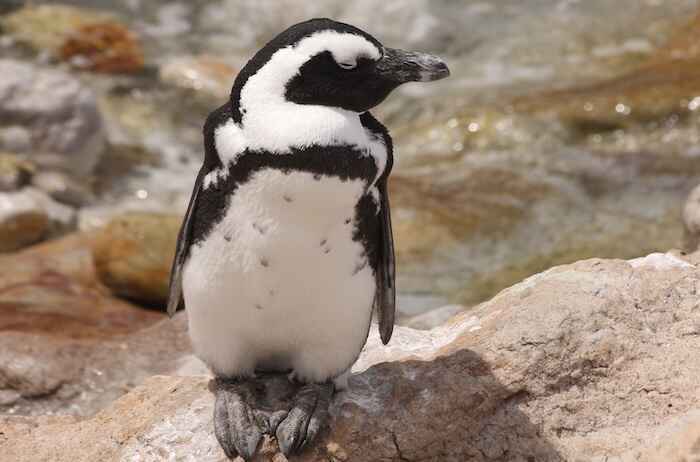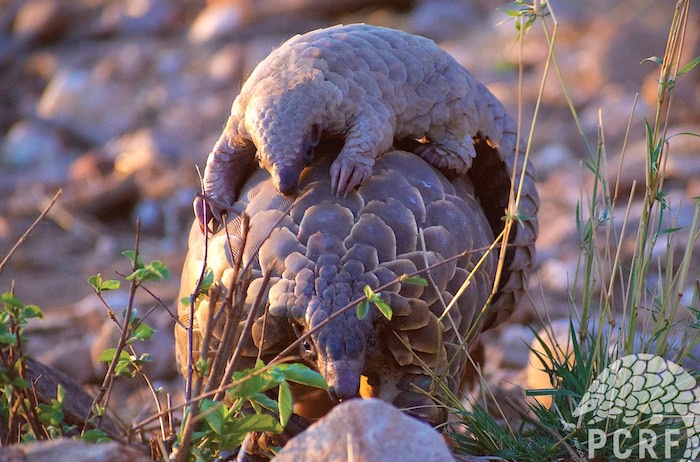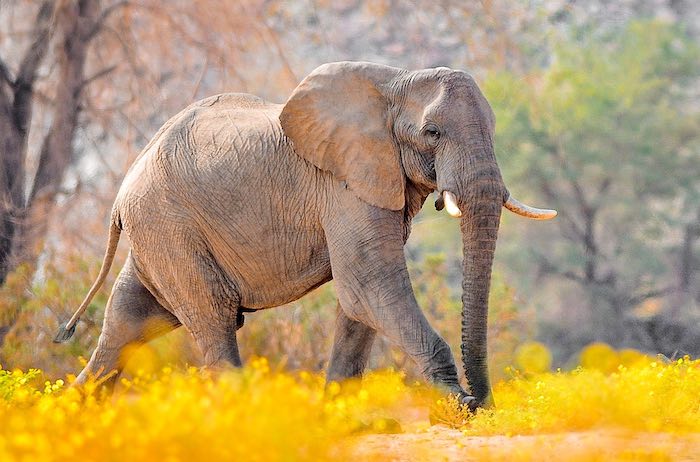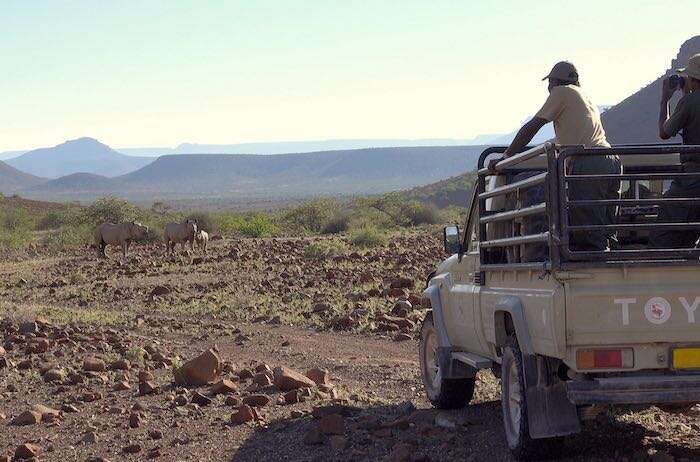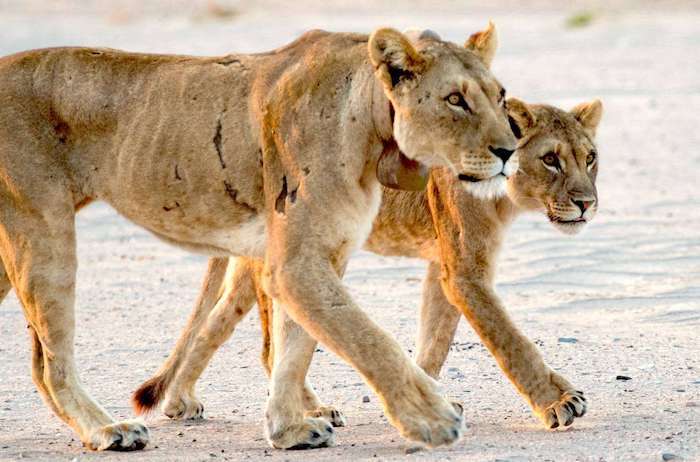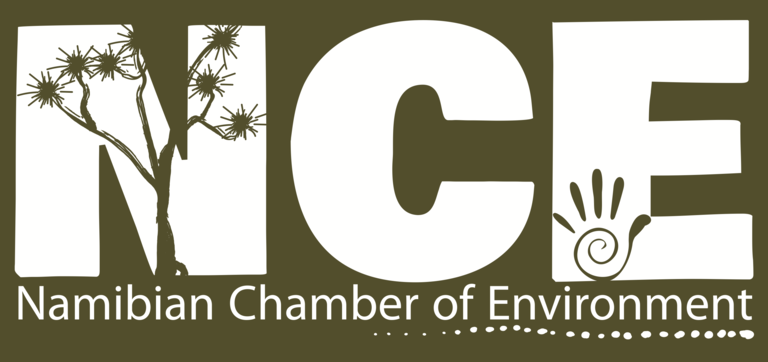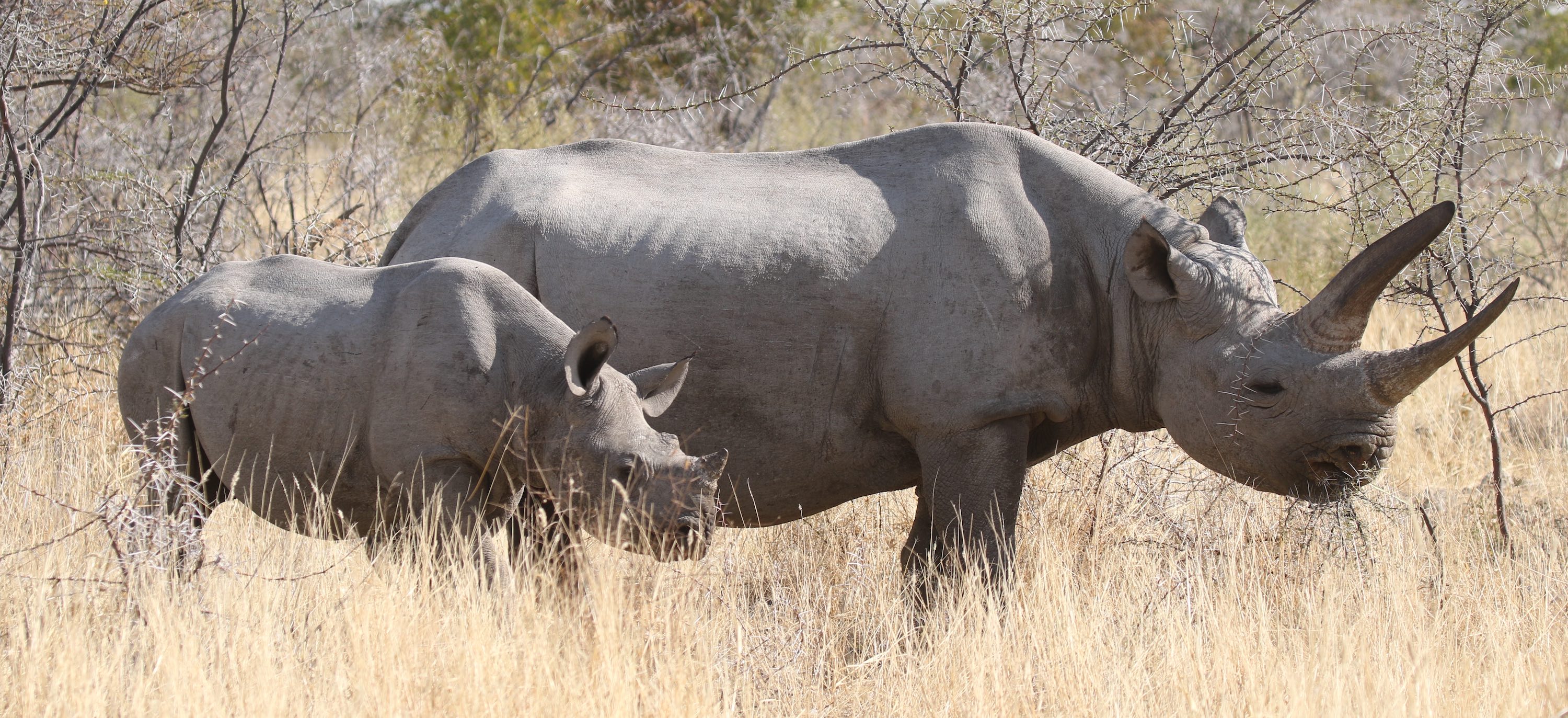
Namibia is taking the fight to poachers and traffickers
15th November 2022
On 14 June 2022, the Ministry of Environment Forestry and Tourism (MEFT) issued a short, devastating media release to inform the public that 11 black rhino carcasses had been discovered in Etosha National Park. The most recent was the carcass of a just three-week-old calf. The statement included a foreboding line: This is regrettable and a strong indication that the fight against poaching is not over.
It felt like a punch in the gut – to the nation, to people around the world who care about conservation, and particularly to the dedicated men and women who work tirelessly to combat wildlife crime on many fronts.
The good news – and it is very good news in the fight to protect global biodiversity – is that Namibia remains home to significant populations of cheetah, lion, elephant, and many more critical species, among them the world's largest population of black rhino. With local and global technical and financial support, including support from the WWF network, Namibia's efforts to protect wildlife led by the MEFT are largely working, but the fight continues.
Protecting Namibia's conservation gains against new threats
For the past three decades Namibia has adopted conservation approaches that have expanded the range and increased the population sizes of many wildlife species, including black rhinoceros, elephants, and large carnivores. Wildlife recoveries have been particularly noteworthy within the communal areas of Namibia, attributed to the emergence of communal conservancies since 1996. Namibia's progressive legislation has allowed people living with wildlife to benefit from these natural resources, resulting in community stewardship, goodwill, and support for nature conservation. Over this period, poaching activities remained at all-time lows.
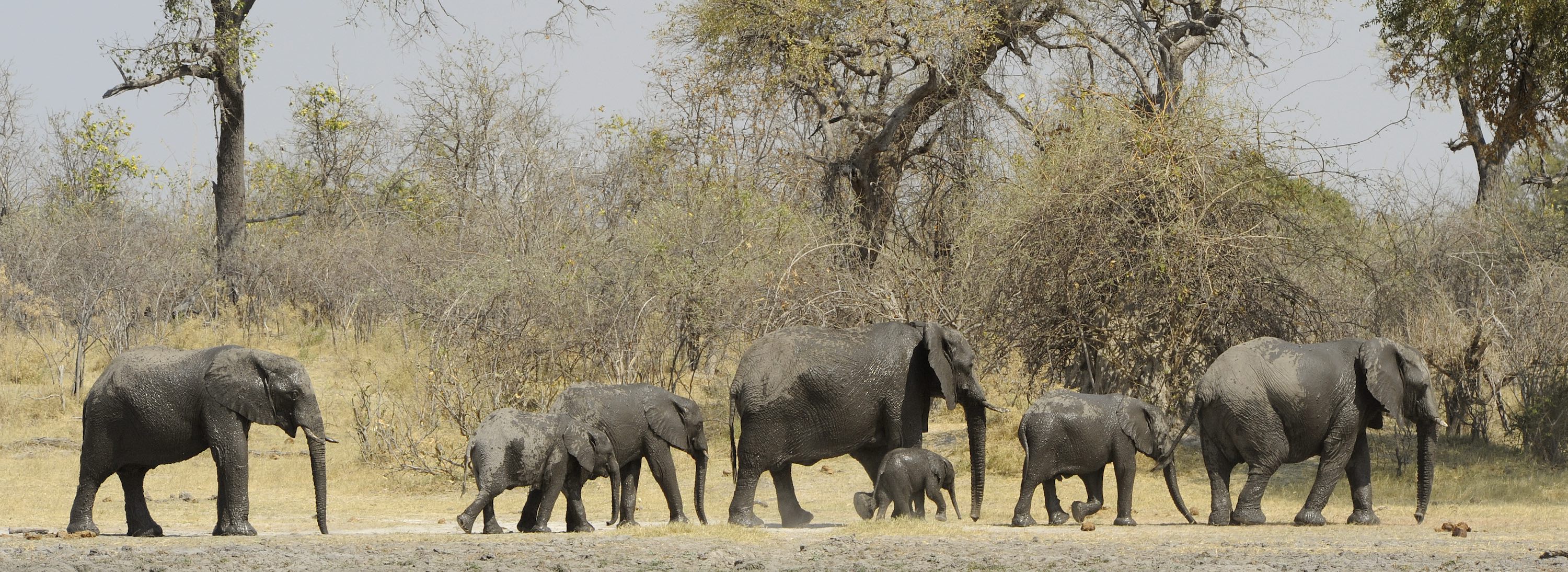
However, as ivory and rhino horn prices escalated, elephant and rhino poaching became highly criminalised and organised. It became evident that community goodwill and support was no longer enough on its own to combat poaching. This is especially true for the national parks and freehold land outside communal conservancies, where poaching has become increasingly problematic. Targeted interventions through law enforcement, investigations, and prosecutions were needed to counteract organised poaching syndicates operating across Namibia and beyond our borders.
The increase in poaching coincided with below average rainfall, slow economic growth and reduced government budgets for conservation. WWF Namibia recognised that a more focused anti-poaching and law enforcement support effort was required alongside strengthened community stewardship. Together with the MEFT, Save the Rhino Trust, conservancies that employ Rhino Rangers, the Namibia Nature Foundation, Rooikat Trust, the Blue Rhino Task Team, and many other organisations, WWF Namibia is engaged in targeted projects that work with local communities, national parks staff and law enforcement officers to address the multi-faceted challenge of wildlife crime from many angles simultaneously.
Grassroots and across borders
For the past five years the Combating Wildlife Crime Project (CWCP) has sought to counter growing threats from transnational wildlife crime against globally significant rhino populations in Namibia's northwest and the continent's largest elephant population in the Kavango-Zambezi Transfrontier Conservation Area (KAZA).
CWCP, funded by USAID and managed by WWF, has two distinct goals: To increase the black rhino population in Namibia, and to stabilise and contribute to the range expansion of KAZA elephants over the next five years.
Providing support to the Rhino Pride campaign in the northwest, helping community conservation programmes take root in Angola and working with TRAFFIC to gain insight into wildlife trafficking trends are a few of the projects that the CWCP and its partners have implemented. These projects have helped to build and expand a regional network of civil society organisations working on wildlife crime-related matters.
Given the project's clear-cut and broad goals, it is critical to mark milestones. Mike Strang, Chief of Party for CWCP says, In the northwest, rhino poaching was reduced by 78% during the project timeline, with more than two years of zero poaching recorded for 2018-2020 and between August 2020 and April 2022, plus a good record of births for the black rhino population during that time.
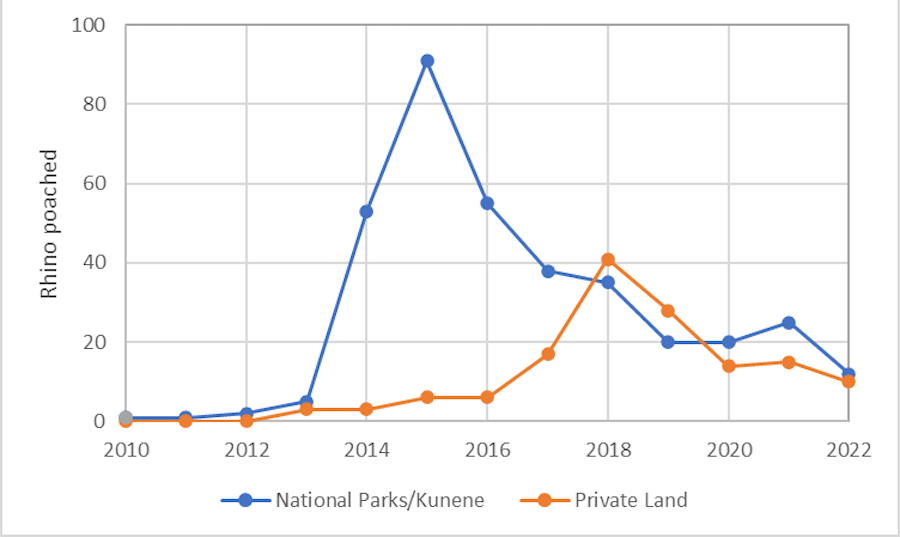
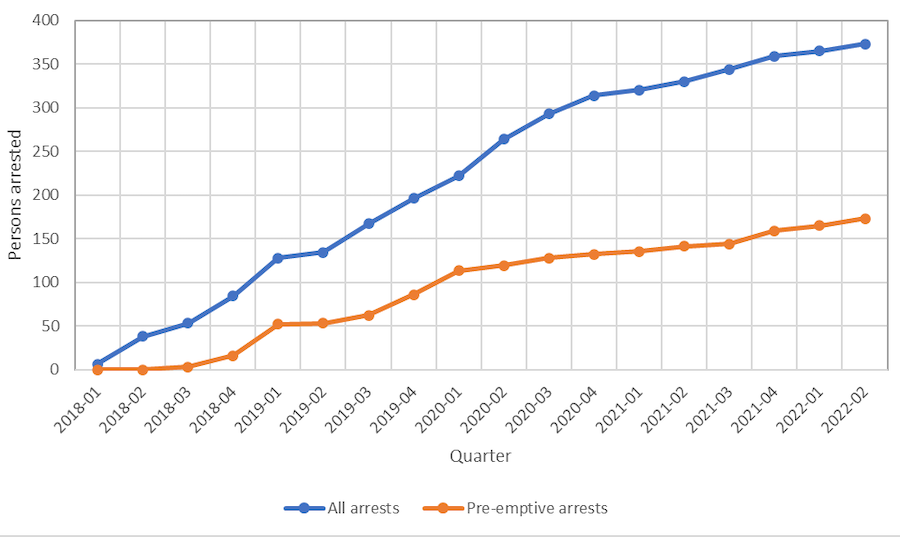
In the national parks
The Integrated Wildlife Protection Project (IWPP) supports the MEFT Wildlife Protection Service (WPS), which was created in 2015 to counter the increasing pressure exerted on wildlife, especially rhinos and elephants, by organised crime syndicates. The Federal Republic of Germany supports and finances the project through the German Development Bank (KfW) and invests in infrastructure development, equipment, and training of WPS staff.
New infrastructure is planned for Otjovasandu in western Etosha National Park, Bwabwata National Park and Sesfontein in the northwest. The rangers are trained to use the Spatial Monitoring and Reporting Tool (SMART) system, which allows them to collect georeferenced information and photographs while on patrol or when responding to poaching incidents. The information is recorded on a smartphone and uploaded to a central database. The automated reports and analyses produced by the SMART system can help improve patrol effectiveness and provide additional information for investigating and prosecuting wildlife crime.
As Bennett Kahuure, Director of Parks and Wildlife at MEFT, explained, The IWPP contributes significantly towards the reduction in illegal killing of wildlife including the illegal harvesting of other natural resources in Namibia which has negative economic impacts on the tourism sector in Namibia
The IWPP also supports research, wildlife monitoring and the development of strategic and technological advances to curb the illegal wildlife trade. WWF is a technical advisor to the project and supports the MEFT in the financial and administrative management of the project through a unit of five full-time WWF staff based at MEFT.
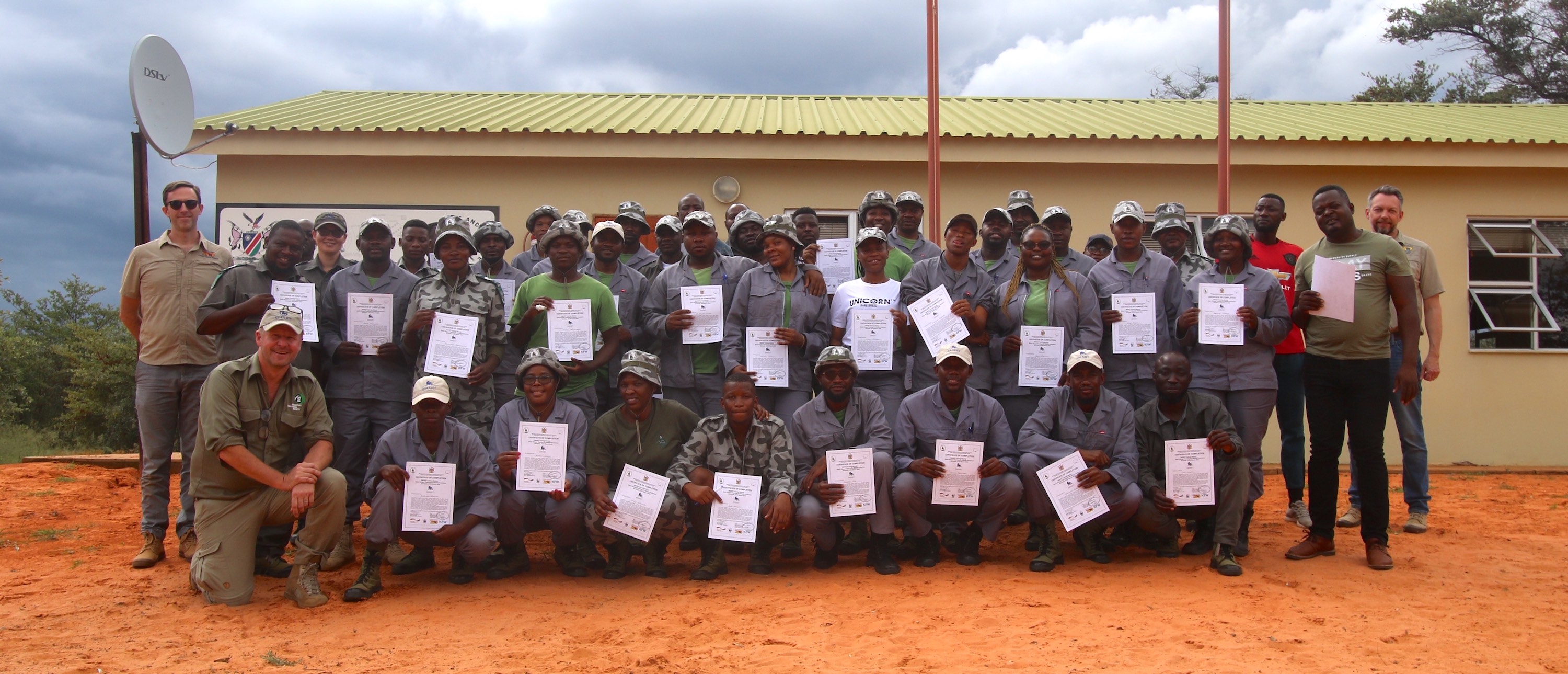
In the courts
In 2016, WWF received funding from the U.S. Department of State – International Narcotic and Law Enforcement Affairs (INL) – for two projects: Combating wildlife trafficking in Namibia, and countering wildlife trafficking in Namibia and KAZA.
The overall goal of the INL projects is to reduce poaching and trafficking of protected animals and their body parts originating from Namibia and to reduce the ability of criminal groups to carry out and profit from poaching and trafficking protected animals and plants, originating from or transiting through Africa.
To achieve this, Namibia's criminal justice institutions must be strengthened for successful law enforcement, investigation, and prosecution of wildlife crimes. The projects aim to support wildlife crime response strategies developed by the government of Namibia over the past few years, which resulted in the National Strategy on Wildlife Protection and Law Enforcement and Namibia's Parks and Wildlife Bill. Furthermore, the projects aim to reduce wildlife crime by improving the capacity of the forensics and criminal justice system in Namibia to increase successful prosecution rates of wildlife criminals and trafficking syndicates.
INL facilitated the development of the Namibia Rapid Reference Guide (RRG) on Investigation and Prosecution of Wildlife Crime, which is a summary of the International Consortium on Combating Wildlife Crime (ICCWC) toolkit launched in 2021. It sets out standards that all prosecutors and other entities must apply to all criminal cases and identifies the relevant ‘points to prove' to aid investigations and adjudication. Prosecutors, investigators, presiding officers and others in the justice system use the RRG to ensure that wildlife criminals are brought to justice.
With support from INL and Rooikat Trust, a collaborative relationship between police officers (NAMPOL), MEFT investigators, the Office of the Prosecutor General (OPG), customs (NAMRA) and the Financial Intelligence Centre (FIC) has been created to put a proper financial forensic system in place for investigators to follow the money
. This system has enabled speedy arrests and the disruption of local criminal syndicates and international wildlife crime networks.
A National Environmental Crime Prosecution Unit (ECU), established in the Office of the Prosecutor General, is the first of its kind with two dedicated senior prosecutors mentoring and training prosecutors and investigators across the country. This unit has cleared some of the backlog of cases that have posed a major challenge to the judiciary.
The ECU has been active in the Zambezi Region and will be working in other parts of the north soon. This alone has made a huge difference in clearing cases and ensuring that wildlife crime is taken more seriously by the courts,
said INL Project Coordinator, Hertha Itembu.
To date, 155 suspects have been charged with the Prevention of Organised Crime Act 29 of 2004. Their names have been submitted to the Financial Intelligence Centre (FIC) for further financial investigations and lifestyle audits.
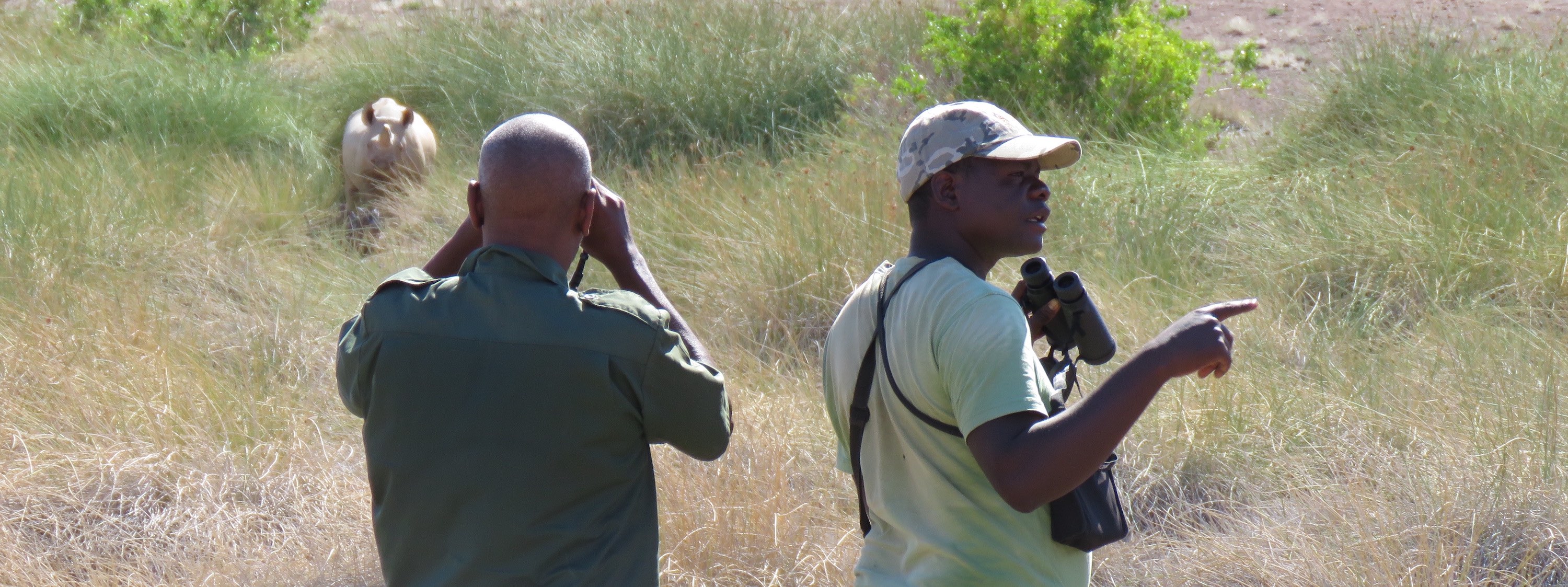
The fight against poaching continues
Back to the rhino poaching case in Etosha National Park: Approximately one month after the rhino carcasses were found, law enforcement officials had arrested 11 people in connection with the June poaching incidents. Action was coordinated and swift, a testament to the new partnerships and improved investigation procedures developed in Namibia over the past few years.
In response to the recent discovery of carcasses of poached rhinos in Etosha National Park, law enforcement efforts were intensified and through intelligence-driven operations and investigations, 11 arrests were made in four different incidents in regions adjacent to Etosha,
said MEFT spokesperson Romeo Muyunda.
The goal is ultimately to prevent poaching from ever happening. Partnerships are key to achieving this goal. The projects described here are a few examples of focused, dynamic, cross-cutting efforts that are making an impact in combating wildlife crime. Their success depends on collaboration among the government ministries of Environment, Forestry and Tourism, of Justice and of Home Affairs, alongside the Namibian Police. Members of the Blue Rhino Task Team, the Save the Rhino Trust rangers and management team, and the communal conservancies' Rhino Rangers, are at the coalface of this fight and deserve our continued support.
Ultimately the battle against wildlife crime depends upon each of us. If you see something, say something. Speak up. Stand up and join the fight.
MEFT Poaching hotline: 55555
If you enjoyed this page, then you might also like:
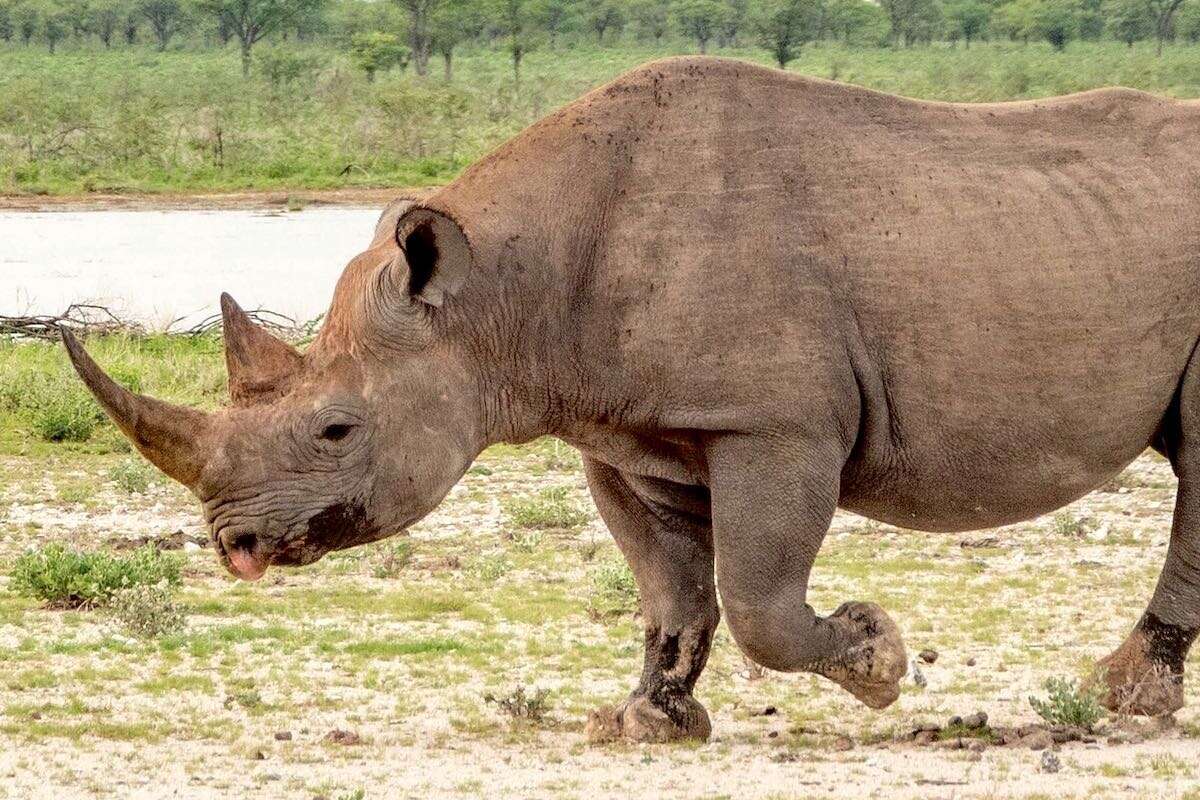

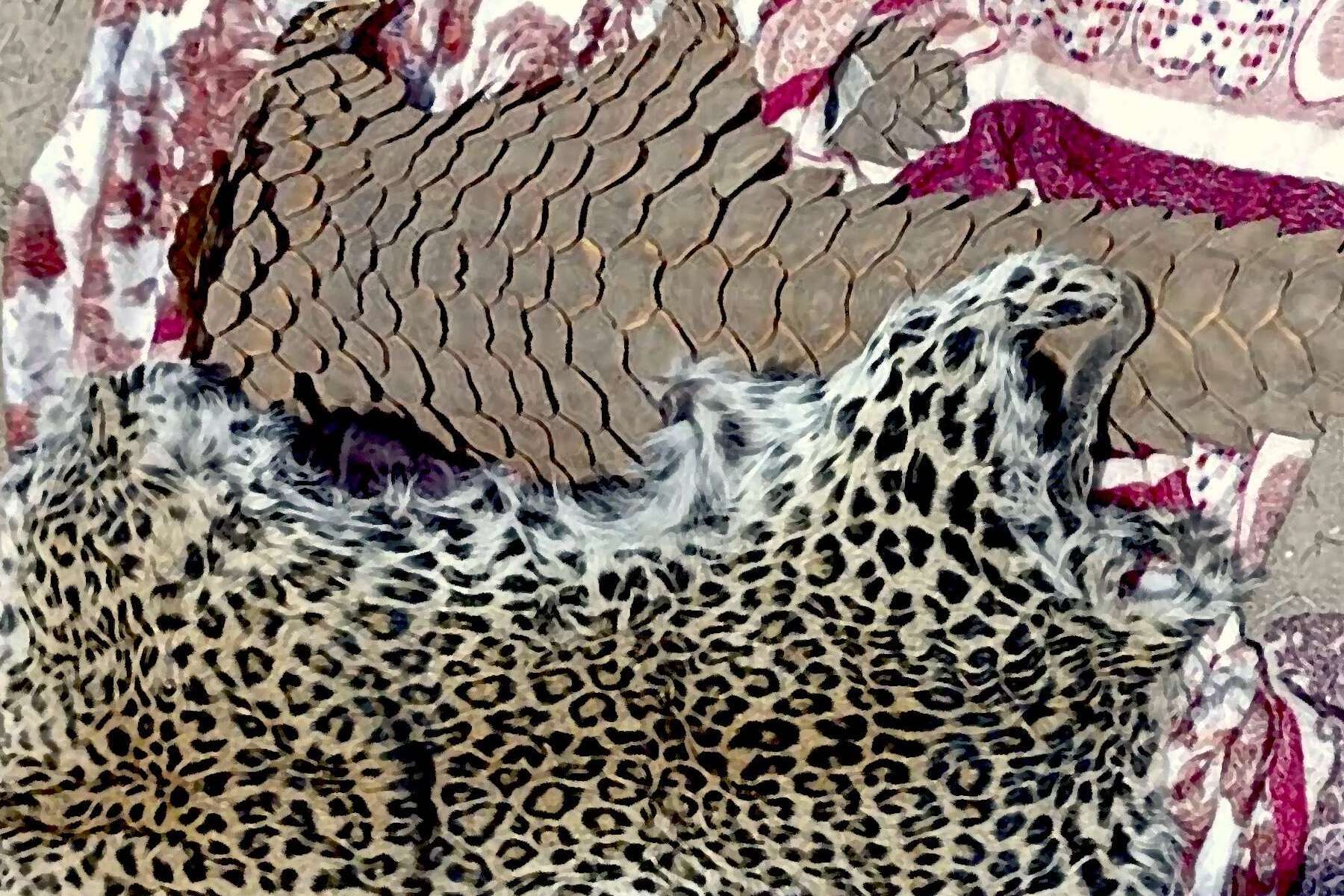
For articles on similar topics, please click one of the following options:
For more great articles from Conservation Namibia see below...
Conservation Namibia brought to you by:
We use cookies to monitor site usage and to help improve it. See our Privacy Policy for details. By continuing to use the site, you acknowledge acceptance of our policy.
